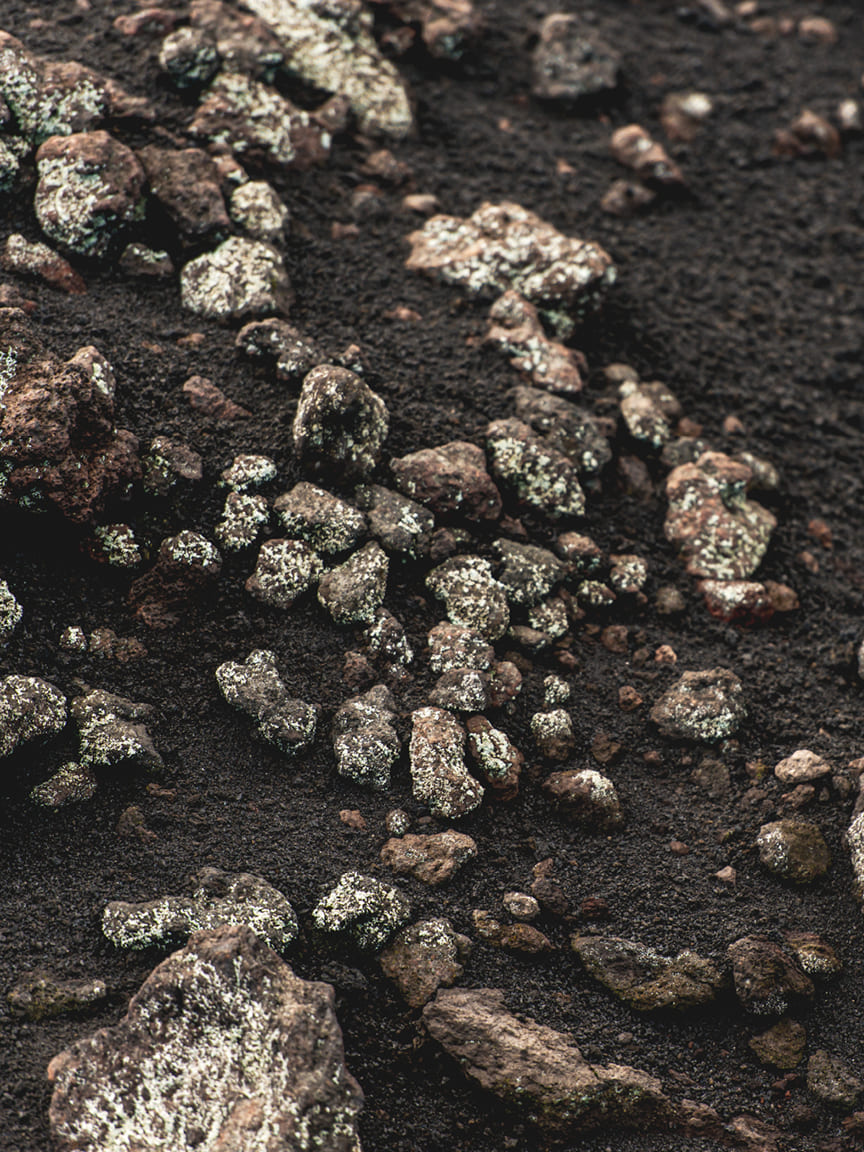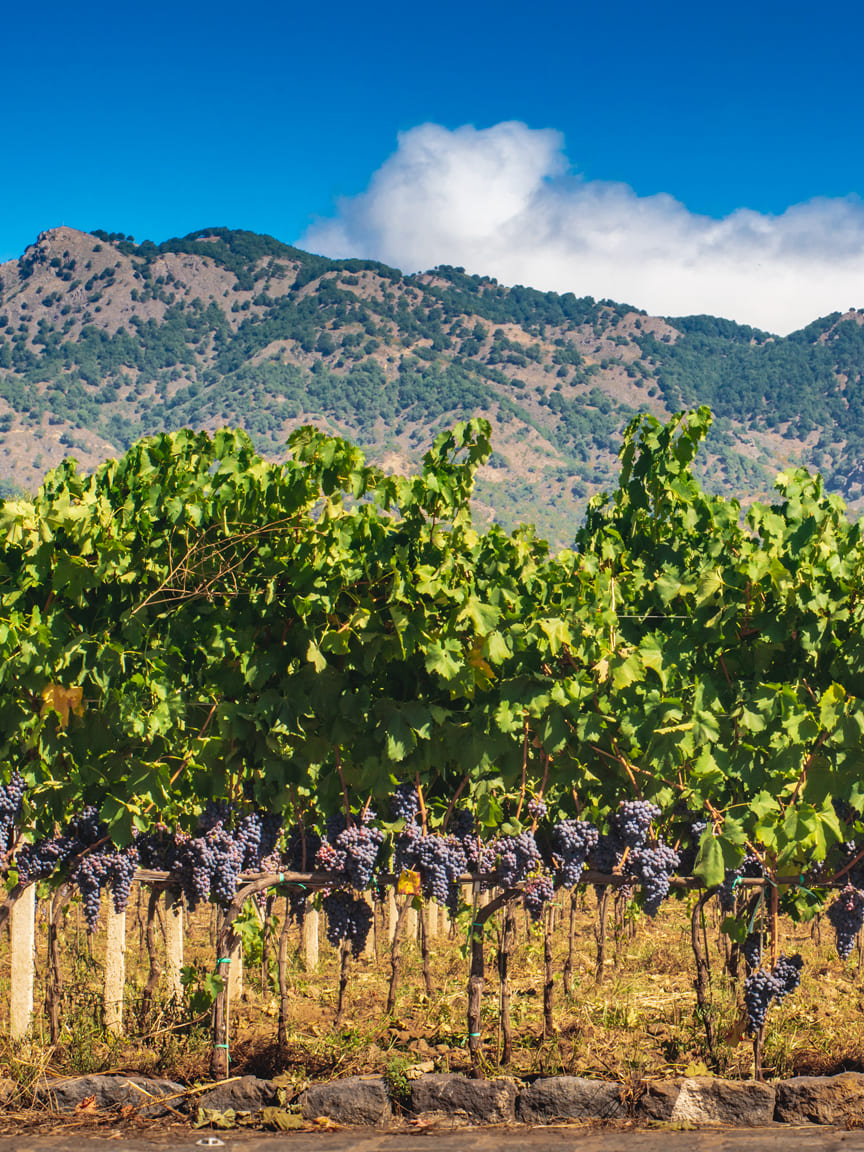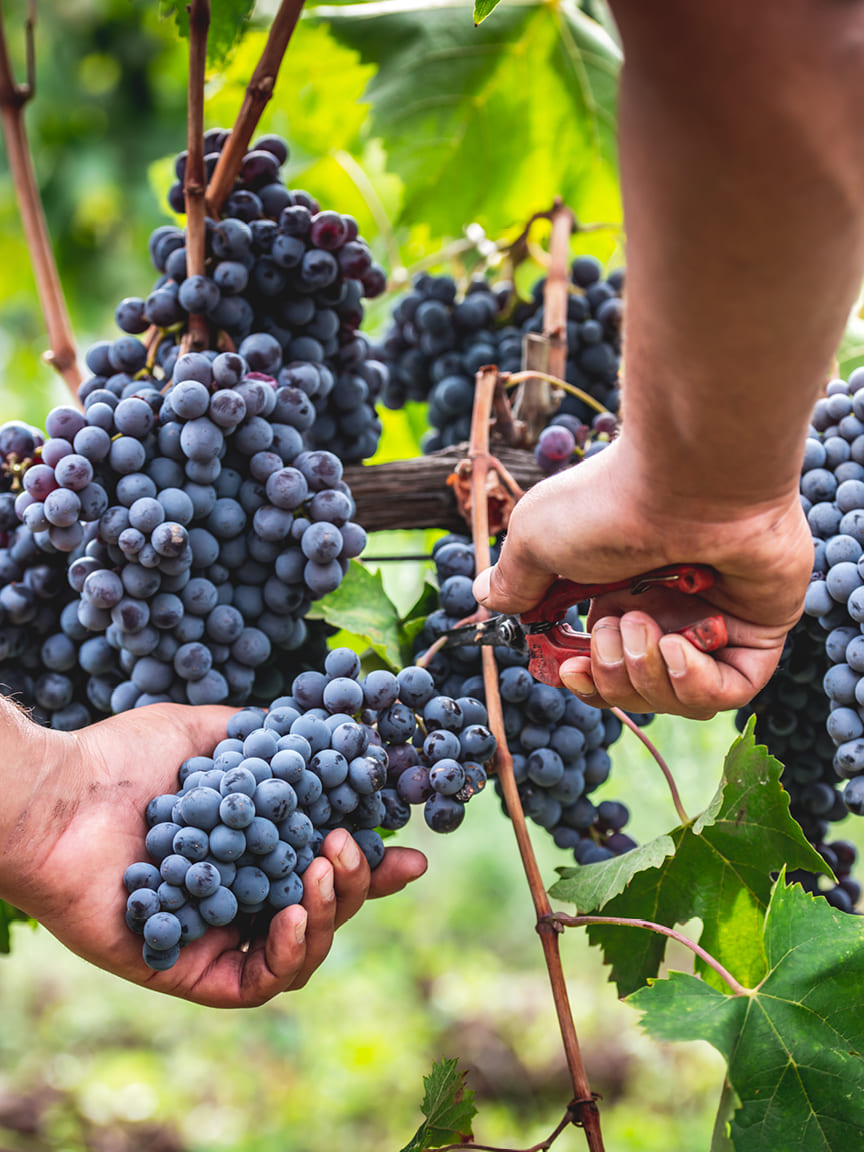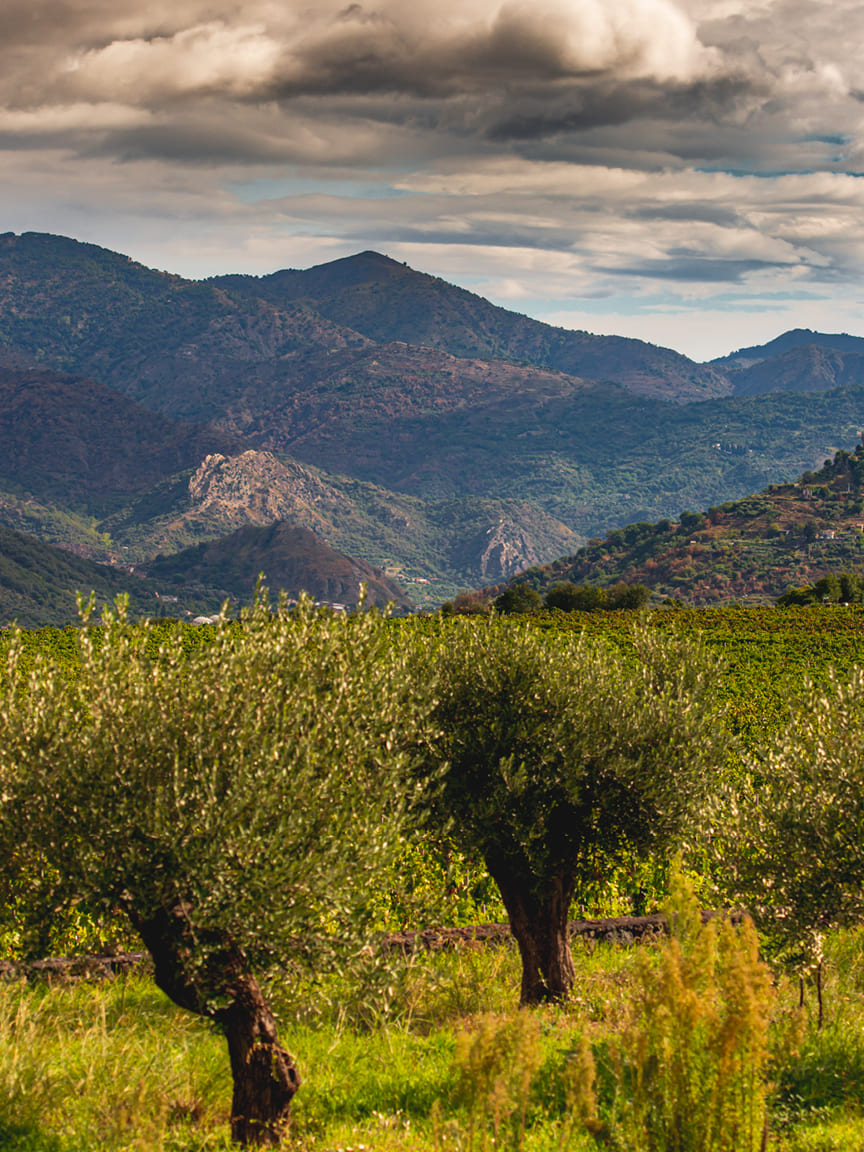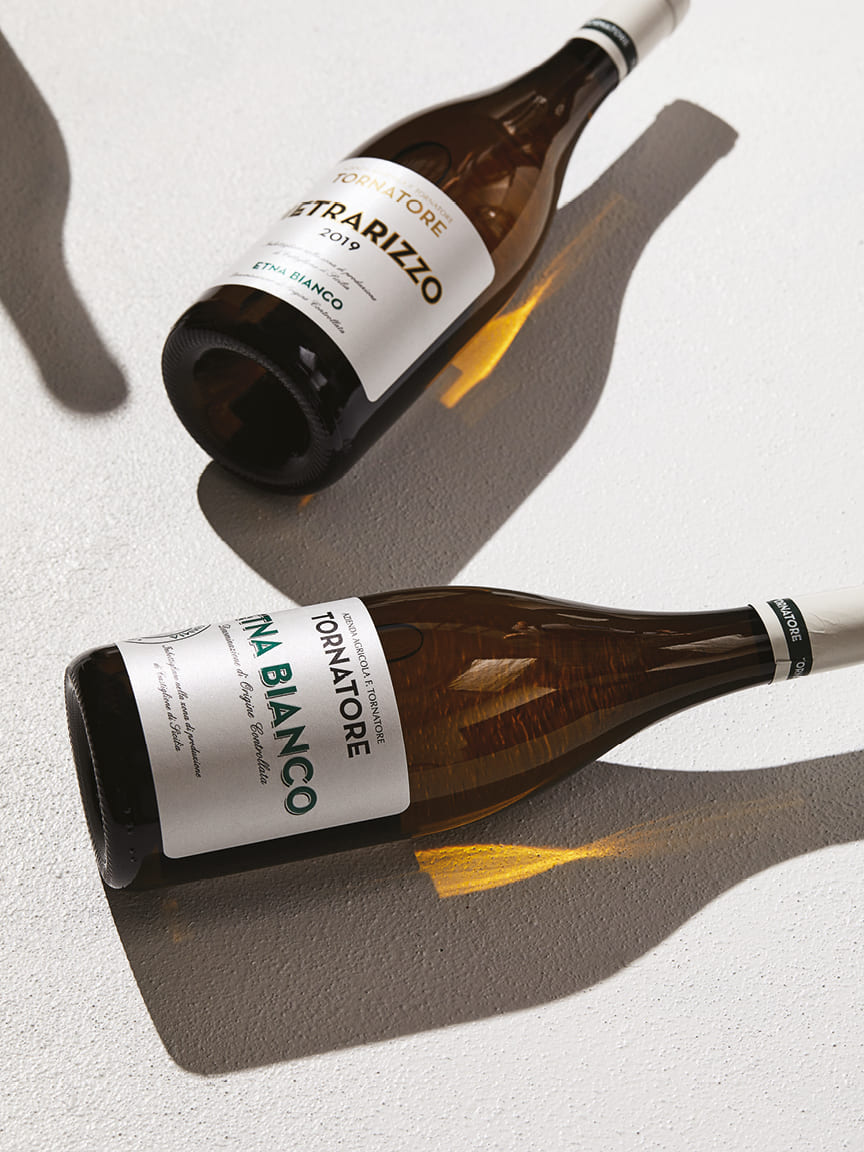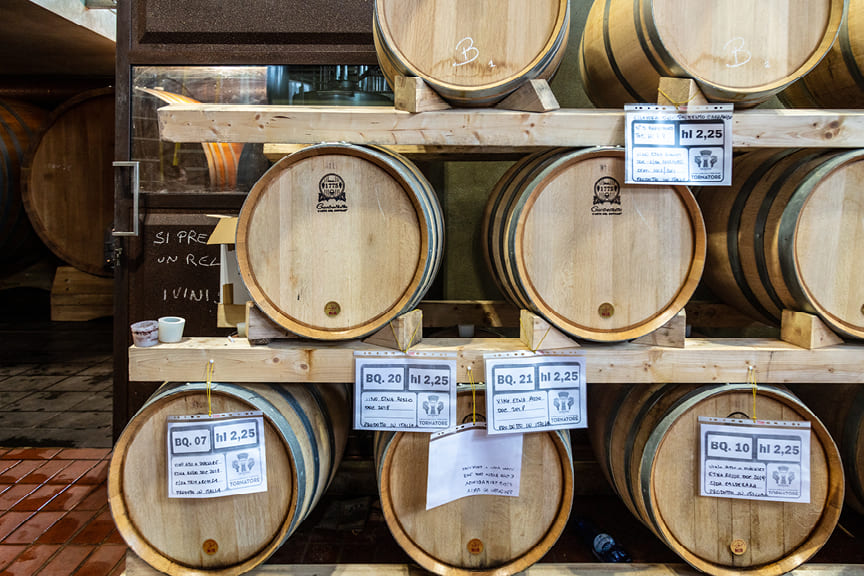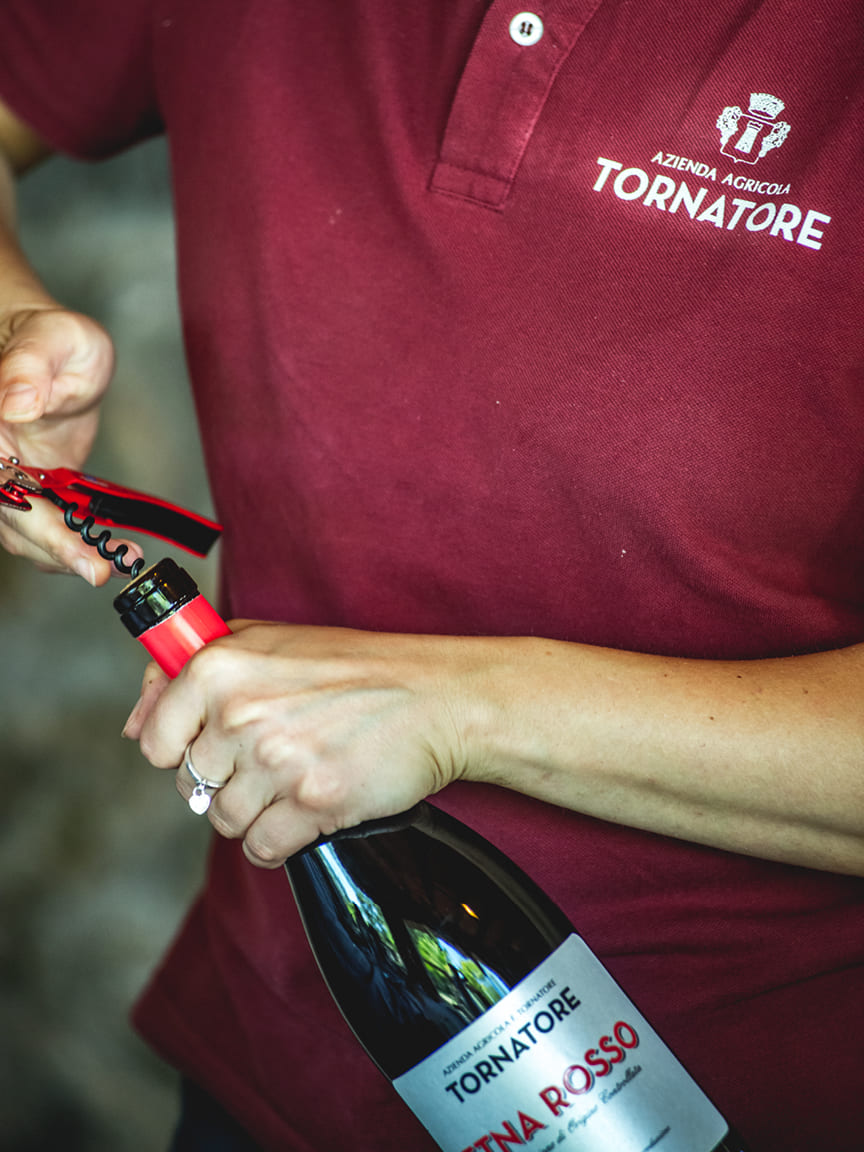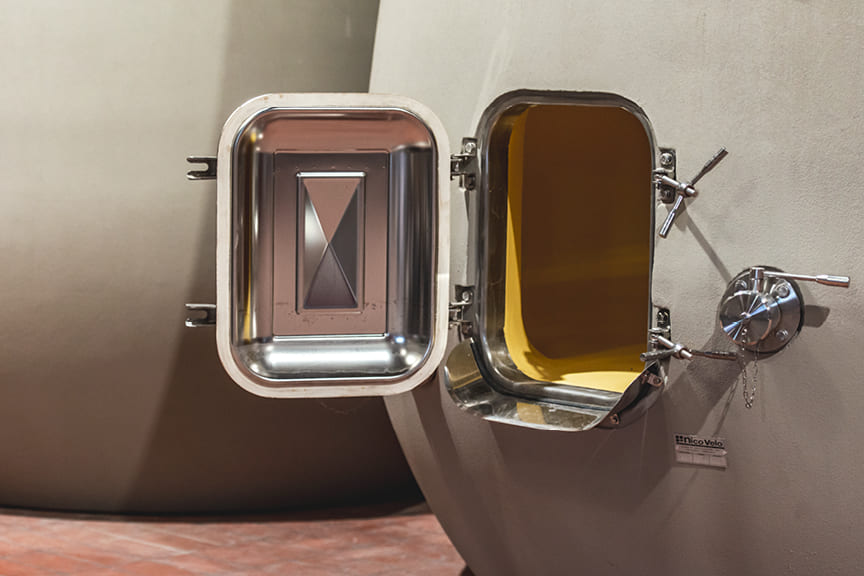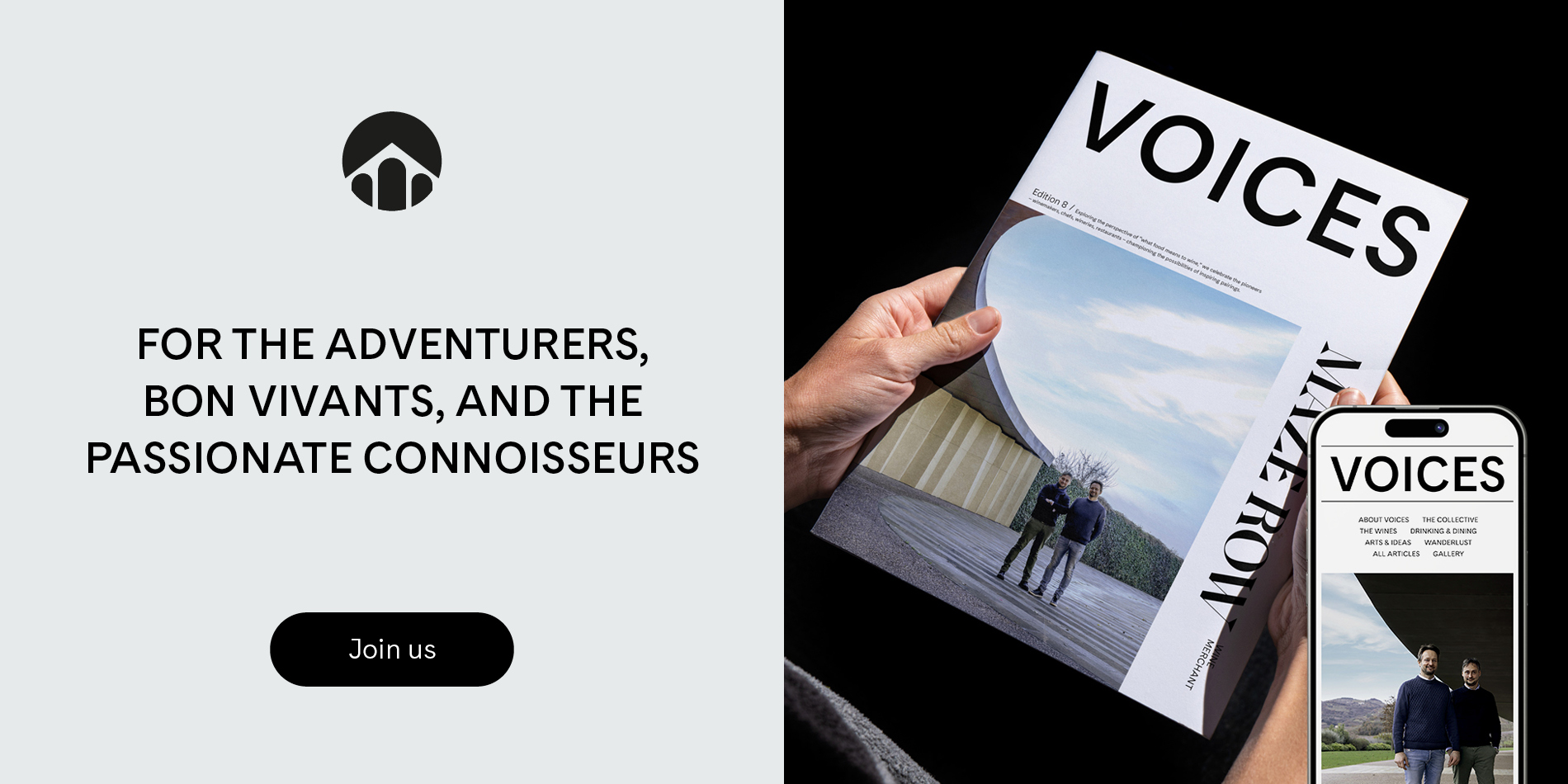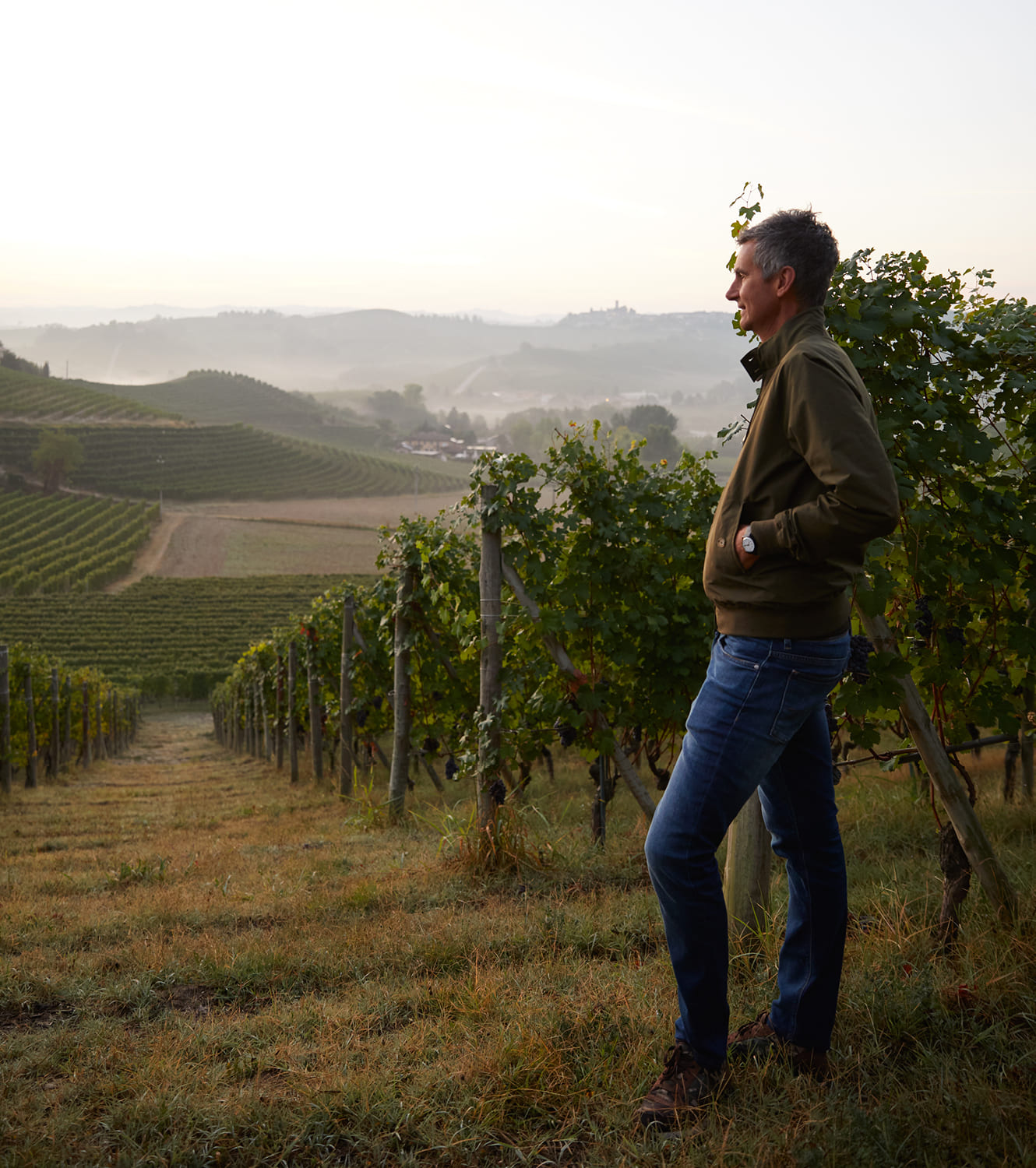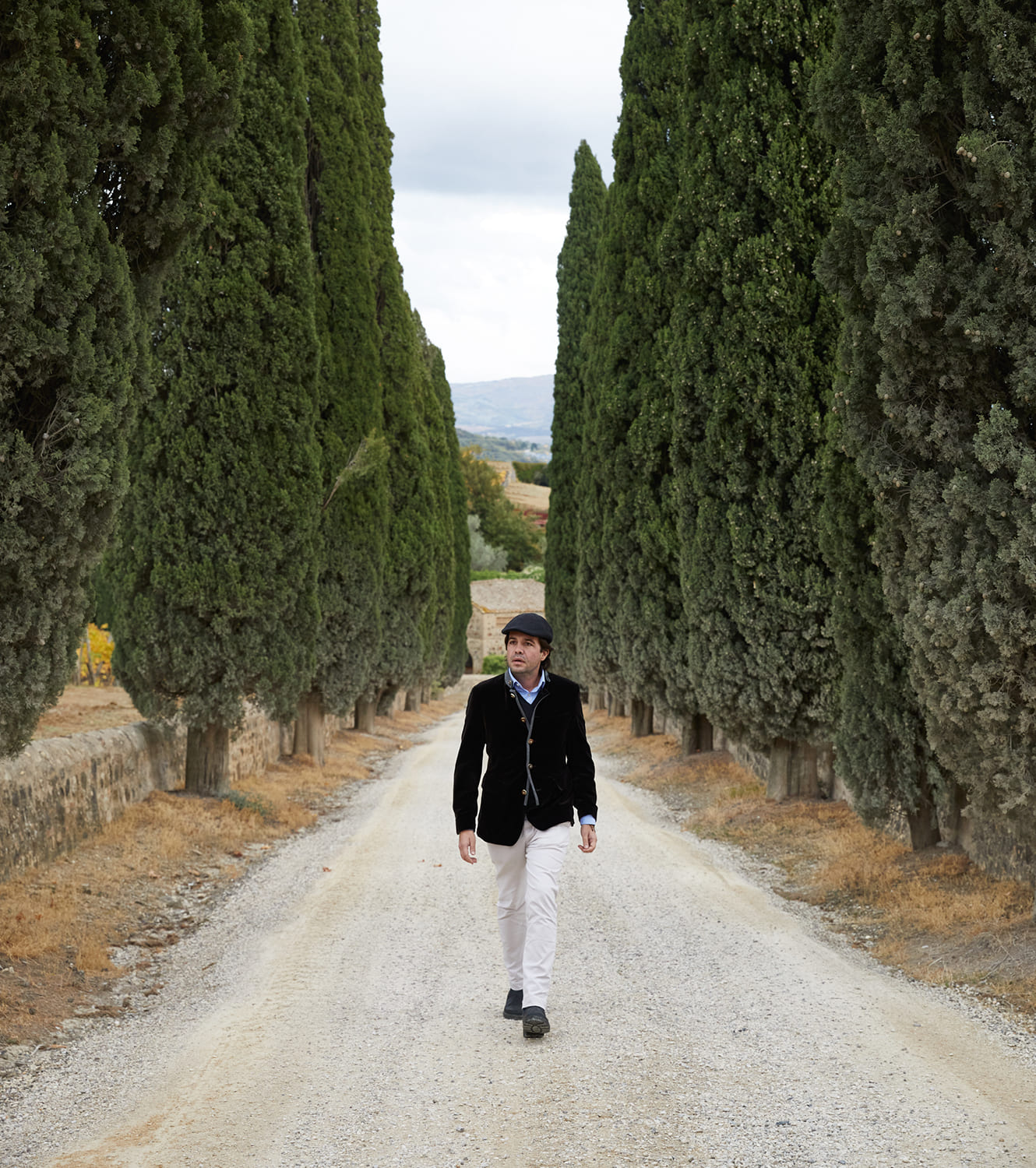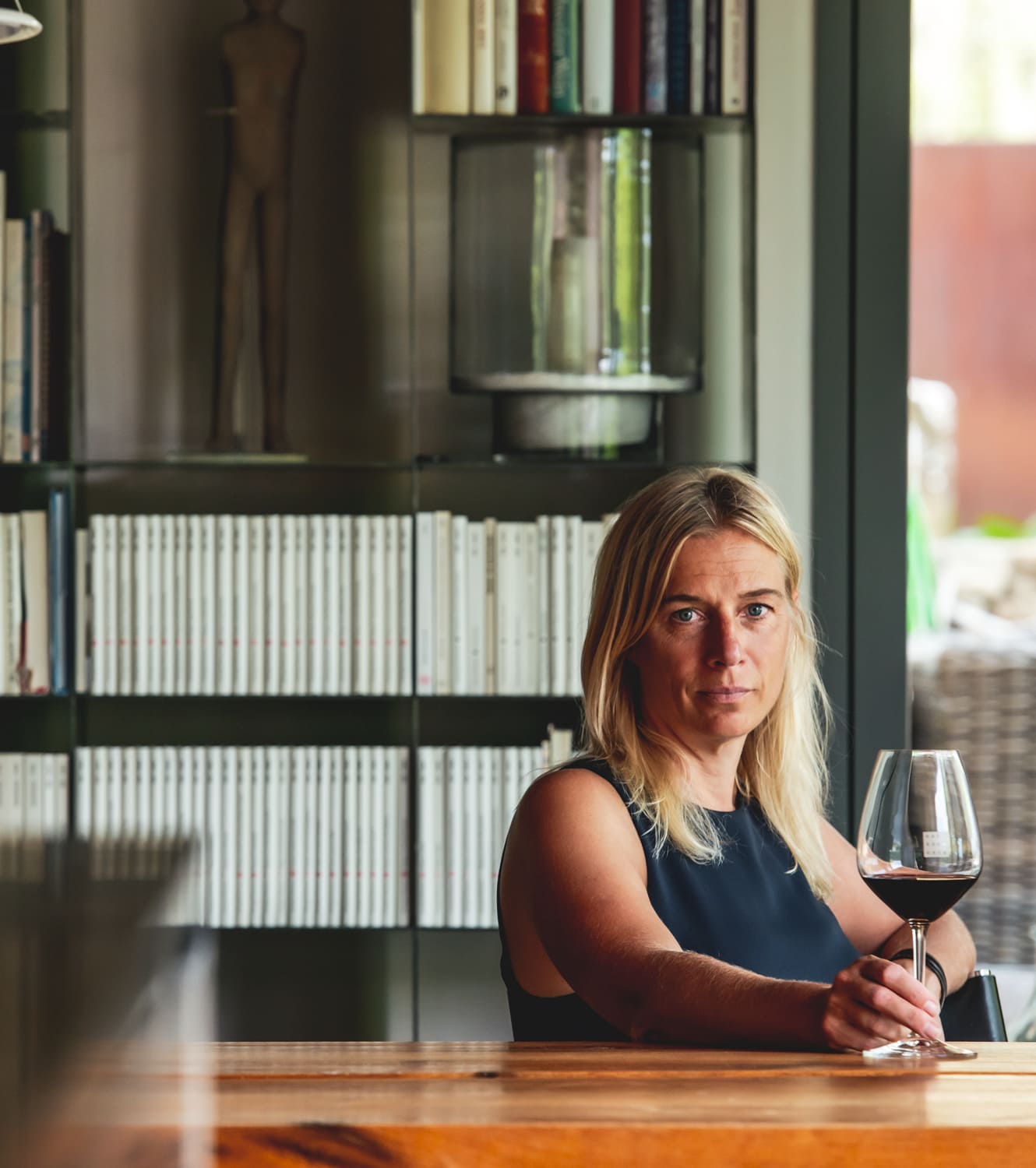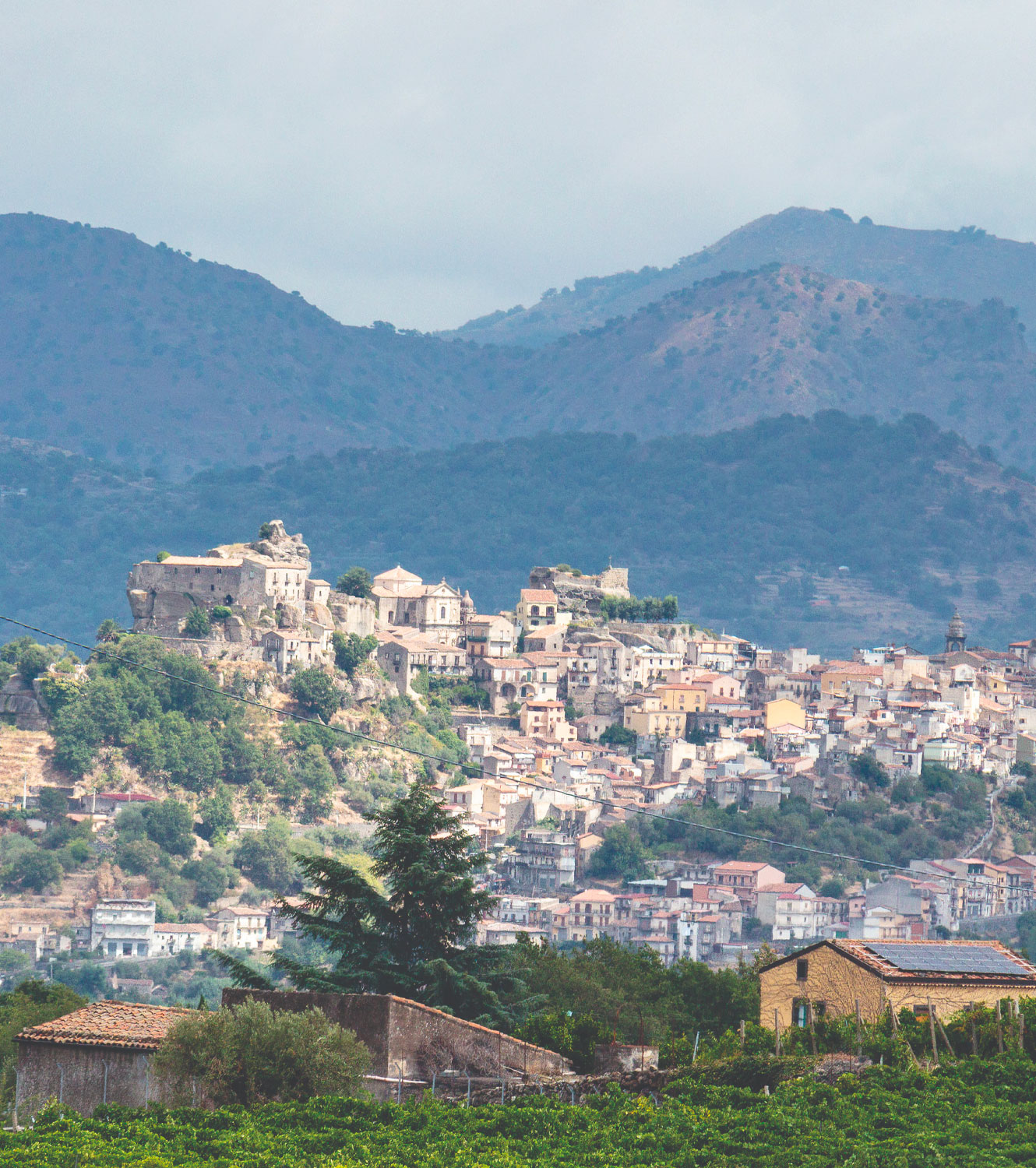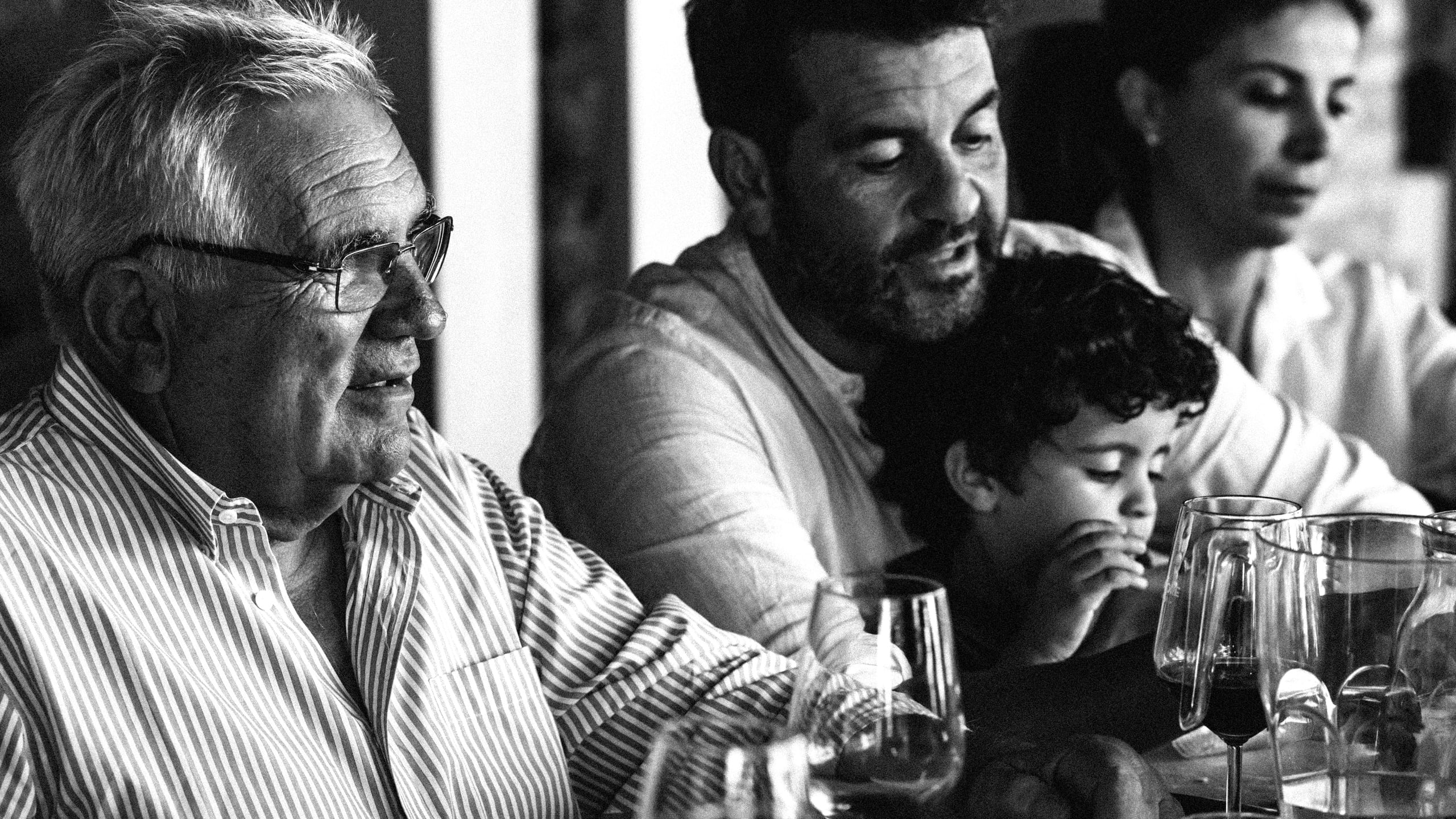
A FAMILY AFFAIR
From the northern slopes of Mount Etna, on the foothills of Castiglione di Sicilia, Tornatore creates wines using native varieties for a clear expression of terroir. Nargess Banks visits the Sicilian winery
Mount Etna makes conversations between wine and land natural. As the beating heart of Sicily, Europe’s largest active volcano is, literally, the soul of the wines. With some of the vineyards reaching elevations of over 800 meters, planting here is never a breeze. The workers have to work hard, as do the vines, to survive the extreme heat that helps the native grapes – the red Nerello Mascalese and white Carricante – gain great depth. This, added to the precious volcanic soil, gives Etna wines a distinct salinity and a thoroughly Sicilian expression.
“Our vineyard offers such a unique environment,” muses Giuseppe Tornatore. “Our location is more southern than Tunisia; we sit on an active volcano and are only 20 kilometers from the sea. The land around Etna is so green, the ash and the lava combine to make it so fertile. This is the reason why farmers move close to Etna. Everything you grow here is amazing. Even the peaches,” he smiles. “I take them back to my home in Milan so that our home gets their sweet scent.”
Giuseppe is speaking of the winery he helps manage with his father, Francesco Tornatore, who founded the namesake business near his ancestral home by Castiglione di Sicilia on the northern slopes of Etna in 2012. His finger circles our surroundings: “The panorama is truly fantastic.”
Etna is in our direct view as we walk the parcels of land, the “contradas” as they are called here, surrounding the old winery. The volcano looms over us seemingly from all directions, peering through a few passing clouds before the sky returns to its piercing blue. Over breakfast, a waiter at the hotel nearby had recounted an eruption earlier in the summer. Picnicking with friends on the foothills, they had continued unphased.
Sensing my unease, Giuseppe says, “Etna is our friend. Am I ever worried about Etna erupting? Maybe in the next century something will happen, but usually Etna is a good volcano. You can see the lava heading down from far away but 99.9 percent of the time it goes into a valley [Valle del Bove]. Then there is always the excitement of what if that last percent,” he trails off with a smile.
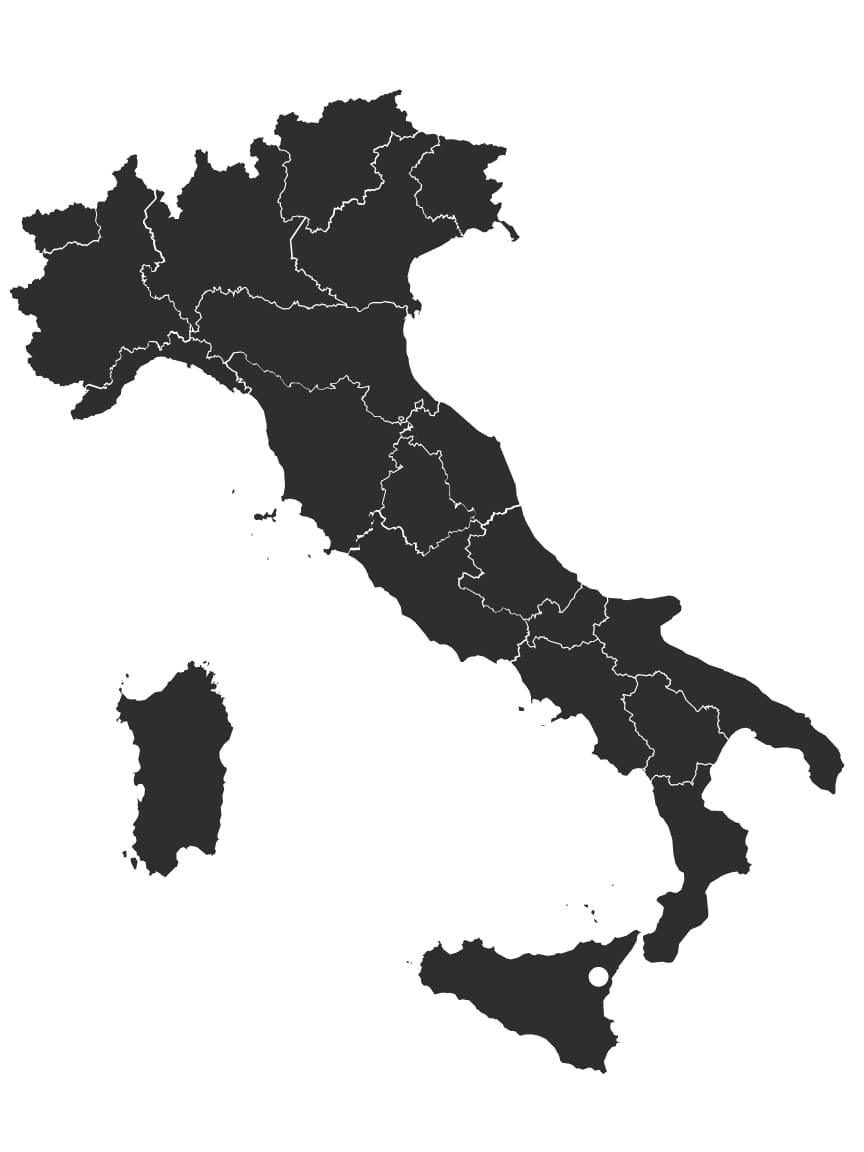
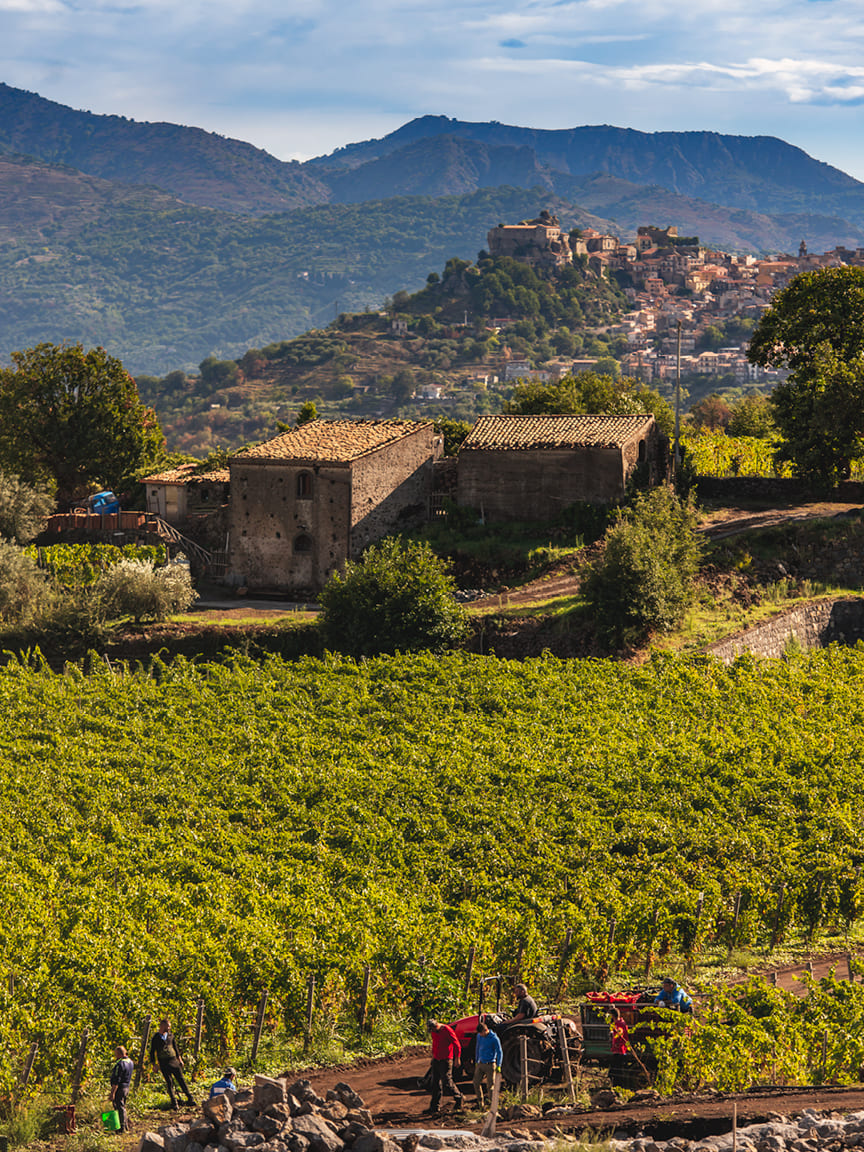
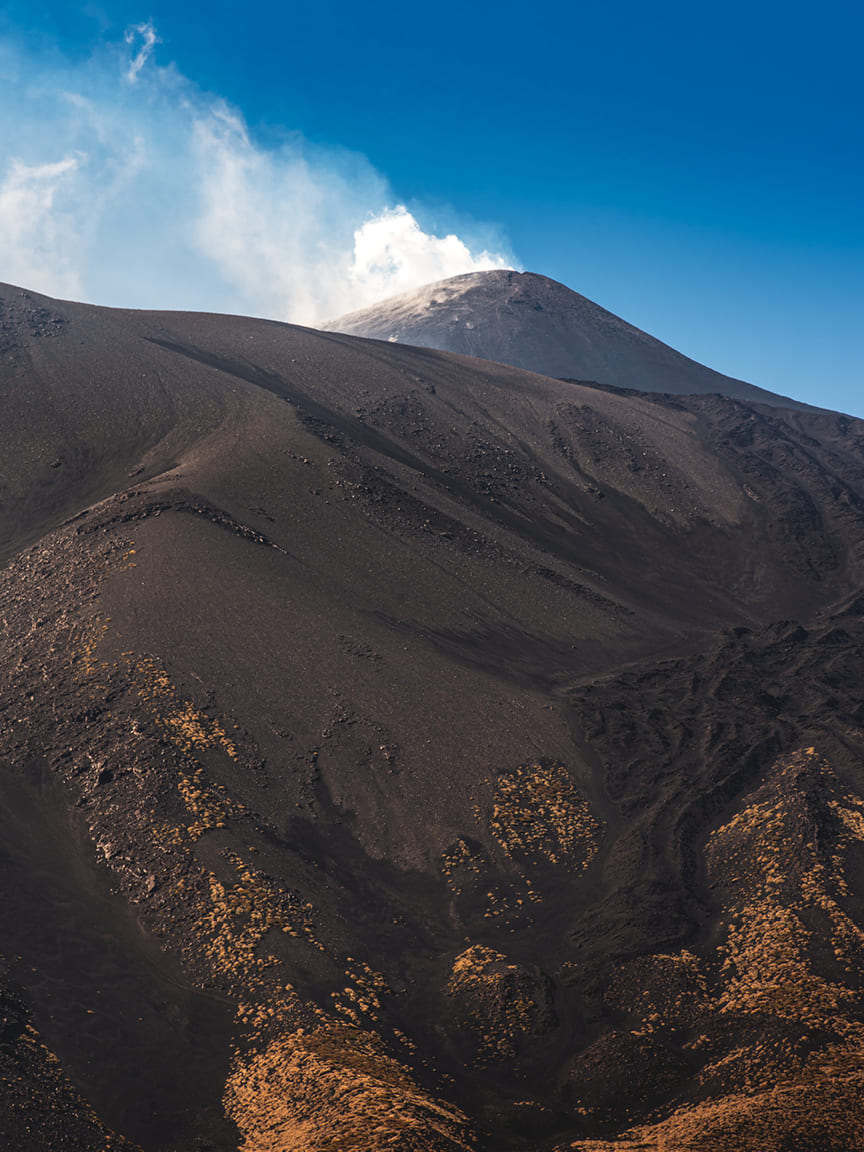
Mount Etna is the soul of the wines, and with some of the vineyards reaching elevations of over 800 meters, planting here is never a breeze
PARTS AND PARCELS
The Tornatore winery is the largest estate in Etna. They farm 60 hectares (148 acres), with a range in altitude from 400 to 700 meters above sea level, and the team has invested heavily in the land with vineyards replanted on drought-resistant rootstock.
The soil composition will differ from parcel to parcel, with elevation impacting on the fruit, so the grape cultivated in each contrada will have a tailored character. Past and new eruptions change the character of the soil; each lava formation will carry a different concentration of minerals, and this impacts on the grapes from one plot to the next. Lower elevations tend to create more fruit-forward wines of power and breadth, while the vines planted on higher altitudes can have a healthy balance of power and elegance, and all along the nutrient volcanic soil connects the wines intimately to this place – this particular spot on the northern slopes of Etna.
There are eight prized contradas on the estate, including Pietrarizzo and Trimarchisa, from which the best vintages are created. “Even though our winemaking process is the same from one contrada to the next, the taste is completely different from wines produced even two kilometers from one another,” explains Giuseppe. Tornatore grows only indigenous grape varieties, hand-picked and harvested in parcels, with each plot having its own barrel to maintain the individuality, which, Giuseppe adds, “allows us to mix more interestingly.”
Tornatore has invested generously in its winery, which is outfitted with concrete, stainless steel and conical wood vats for fermentation, as well as varying sizes of wood barrels for different aging regimens. Winemaker Vincenzo Bambina believes being at the foot of an active volcano means the wines can suffer from the electromagnetism of the volcano currents that are present in the area. The cement vats, therefore, insulate the wine. The big barrels are French Oak, and he avoids too much wood contact so as to keep the wines as clean and fresh as possible.
John Irwin, Maze Row Italian wine specialist and ambassador to Vintaly, believes that “stylistically, Tornatore focuses on the elegance of Etna, with perfumed and bright wines with character varying by site and elevation. Oak usage is always conservative to preserve the freshness in the wines.”
A new winery on the site of an old palace on the estate is currently under construction. The ground floor houses tasting rooms, there are three suites for special visiting guests, while wine production and barrel storage will take place in the vast basement. Tornatore receives visitors from all over the world and has forged a close relationship with a number of establishments nearby to accommodate guests.
Tornatore do their own bottling. The current location has a maximum capacity for 300,000 bottles. The new building will be able to produce and house a lot more.
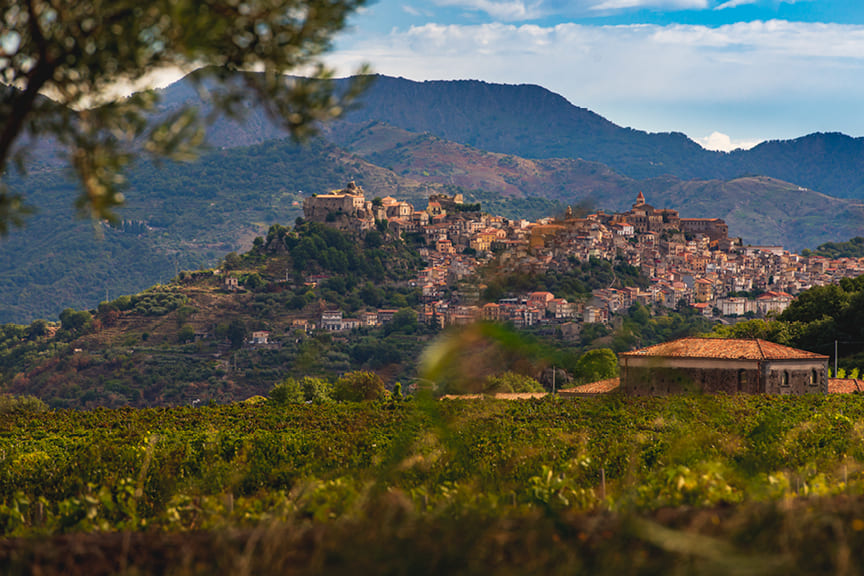
Other than the native Nerello Mascalese and Carricante, Tornatore works with Nerello Cappuccio and Catarratto, which is in the Pietrarizzo contrada
“The land around Etna is so green, the ash and the lava combine to make it so fertile. This is the reason why farmers move close to Etna. Everything you grow here is amazing”
Tornatore has invested generously in its winery, which is outfitted with concrete, stainless steel and conical wood vats for fermentation, as well as varying sizes of wood barrels for different agEing regimens
FAMILY TIES
Our tour completed, we head back to the original building on the estate – an enchanting modest villa Francesco shares with his wife Nina who has prepared Sunday lunch. I say lunch but this is a lavish spread of homemade Sicilian delicacies laid out across a suitably rustic table on the veranda. The setting couldn’t be more idyllic. We are surrounded by flowers and foliage, there are shimmering olive groves and abundant fruit trees in sight, and vines, lots of verdant vines, and all to the backdrop of Etna. As the food and wine flows, our conversations overlap to be as vibrant as the setting.
This morning Giuseppe has flown over from Milan, where he lives with his family looking after Tornatore’s other businesses. Nina had asked him to stop off at Castiglione di Sicilia en-route to pick up some local cured meats and cheeses to complement our lunch. He seems visibly happy to be here, where he grew up. “From these hills you cannot hear any road sounds. The place has stopped in time,” he says as he digs into his mother’s specialties: the caponata and Sicilian meat terrine.
Francesco Tornatore’s family were Sicilian farmers. He was the first to graduate from university in Milan with a degree in engineering, which led to great success and much international travel. Longing for some footing in his ancestral land, in the 1990s he began purchasing plots of land around Castiglione di Sicilia.
Soon, winemaking went from being a small hobby to becoming a business. A modern winery was built on-site and in 2012 his eponymous label was launched.
“We are from a farming family and when I wasn’t at school, I often helped them out. I worked a little but dreamt a lot,” Francesco recounts in Italian, his face charged with passion, as his son translates. “My parents had a small house and when it rained, sometimes it also rained inside! My dream was to one day have an organized and efficient business, to build a beautiful house and a beautiful estate with a dry wall surrounding it.”
He met Nina, a local teacher, while giving her driving lessons. Soon they were to marry and raise two children in this home. “I postponed the wine project until my industrial business was fully established. This was so important, as I didn’t want to have to make money immediately; but to build the business slowly, slowly. I did everything for free at first – I would have people over for wine tasting for free. What I had was the passion then, and Tornatore remains a passion; otherwise, we wouldn’t succeed.”
Nina leans over to tell me her fondest memory of raising a family here is when her daughter, Maria Angela, was married in this very spot. “Everything was so beautiful,” she says, “bello,” pointing to the enchanting garden that surrounds the veranda where we are still enjoying a seemingly endless lunch.
Giuseppe interjects. “It was really nice growing up here. I went to school in Catania and learnt to ski on Etna. You can ski and see the sea below. It’s very beautiful. Now my job, my mission, is to make sure we don’t destroy this love and passion my parents share for here.”
These vineyards around the family home are the first plots of land Francesco purchased and cultivated. “My father would bring me here as a child every Sunday. The company was created because of my father’s passion. He loves this land, working on the land and the process of winemaking,” says Giuseppe. “We don’t want to make an immediate profit from the wines, for us it remains a passion project.”
We have been enjoying Nina’s delicious lunch, with new dishes arriving even before we have time to finish the last. I try to communicate my gratitude using my elementary Italian. She is affectionate and generous and shares her caponata recipe with me. Federica Campo, the hospitality manager, is busy opening a selection of wines, occasionally intersecting our conversation with explanations of the vintages. The atmosphere is suitably jovial. It feels like being amongst family.
Giuseppe continues: “We continuously invest in the business and we never cut corners. We don’t buy in any grapes, which is unusual here since many winemakers buy in their grapes. This way we can keep our quality. And we are constantly working to make our wines better and better. This, and the family passion, to me are our winning points. You know, my father is passionate, but so is everyone else, including my mother.
“What makes us different from the other wineries is we like to be real, and we entertain our guests here like today. I believe people are looking for real-life experience,” says Giuseppe as his father interrupts with: “We are naturale.” He then asked his son to translate the rest: “There are a lot of good wines around the world, but what makes Tornatore wines stand out is the story, the passion here, this unique land.”
Learn more about Tornatore and the wines.
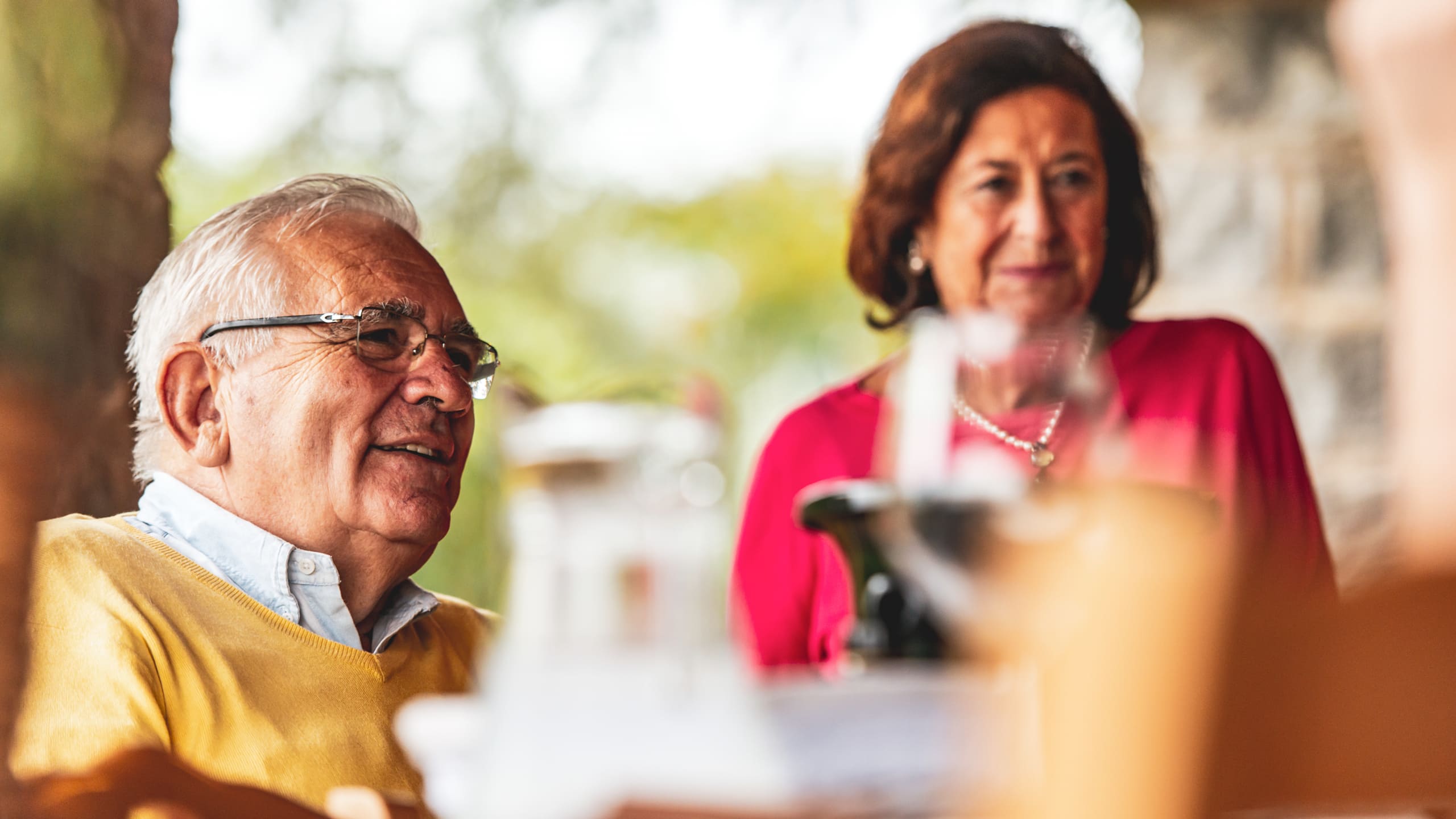
Francesco and Nina Tornatore. all photography ©Leigh Banks
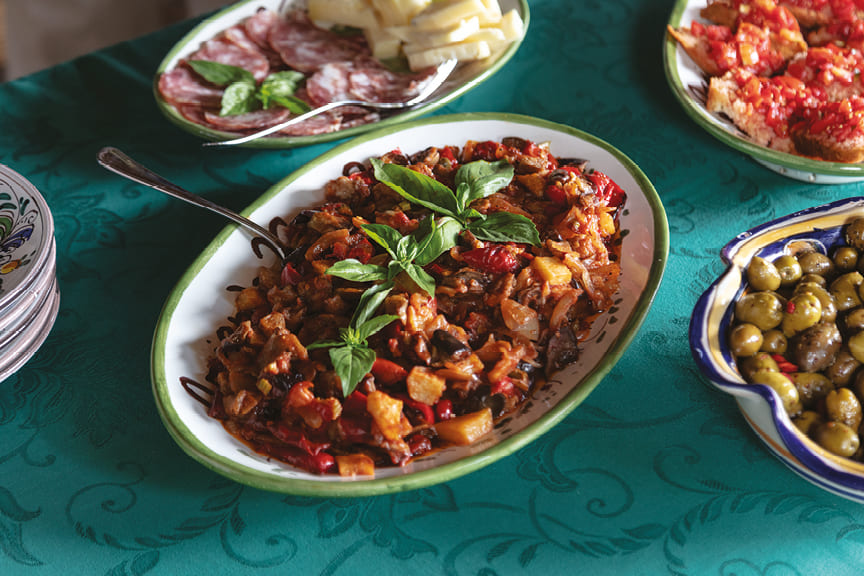
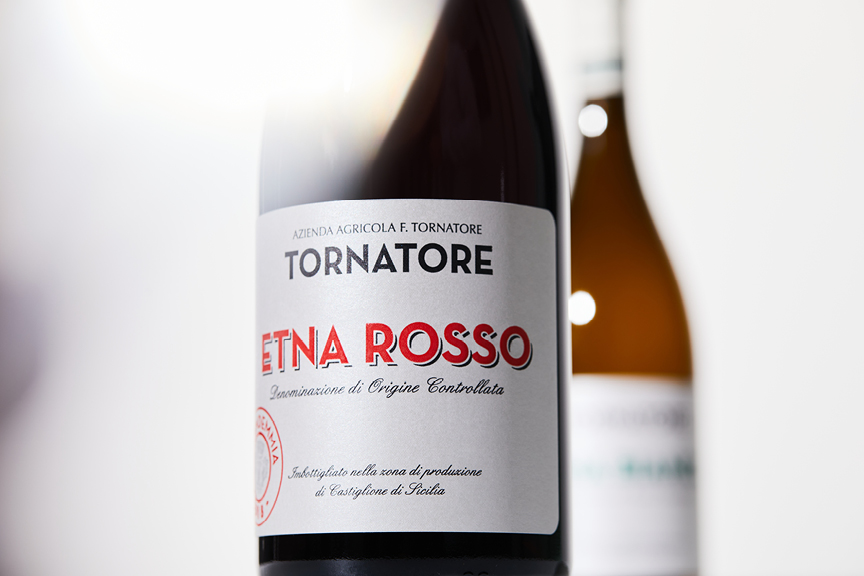
NINA TORNATORE'S CAPONATA
Serves 6
Ingredients
2 red peppers
1 green pepper
1 yellow pepper
3 Turkish eggplant
3 onions
1 celery stick
4 medium potatoes
1 teaspoon of whole capers
4/5 ripe tomatoes
extra virgin olive oil, preferably from the Tornatore estate
Method
Cut the peppers into medium-size cubes, fry in the oil and drain on a paper sheet. Meanwhile, cut the eggplants into medium-size cubes, place in a container with plenty of salt for 30 minutes. Squeeze the excess juice from the eggplants, fry in the oil, and leave to drain on a paper sheet. Cut the potatoes into cubes, fry in the oil, and allow to drain on paper sheets. Note, all ingredients must be kept separate until completely cooled.
While cooling, prepare the tomato sauce by bringing a pot of water to boil, and soaking the tomatoes for a few minutes, then letting them cool a little before peeling off the skin. Peel the onions, dice and fry in plenty of oil, once soft add the peeled tomatoes, crushing them from time-to-time with a wooden spoon. Season and let it cook to sauce consistency. As soon as it’s ready, remove from the heat, add the capers, pepper and all the cold ingredients, then season. Mix and leave to rest for a few hours before serving.
Nina recommends pairing her caponata with the estate’s Etna Rosso or Trimarchisa.
Enjoy Nina’s caponata!
We recommend
RATTI’s hero
His father Renato put Barolo on the map. Now Pietro Ratti is transforming the revered wine for new generations. Nargess Banks meets the vintner at his Piedmont vineyard
ARGIANO’S POSITIVE TWIST
Listening intently to the land, fastidious soil mapping and a scholarly approach to viticulture, has earned the oldest Montalcino winery’s Brunello, red wine of the year. Nargess Banks visits the Tuscan estate to learn more
BARBARA WIDMER IN CONVERSATION
Committed in her convictions about quality wine from healthy vineyards, Barbara Widmer, the owner and winemaker of the Tuscan winery Brancaia, tackles big environmental challenges one technique and one vine at a time
WINE TRAILS OF ITALY: SICILY AND MOUNT ETNA
Continuing our Italian road trip in Sicily and Mount Etna, we visit the wineries and sample the cuisines that best reflect this unique part of Italy
